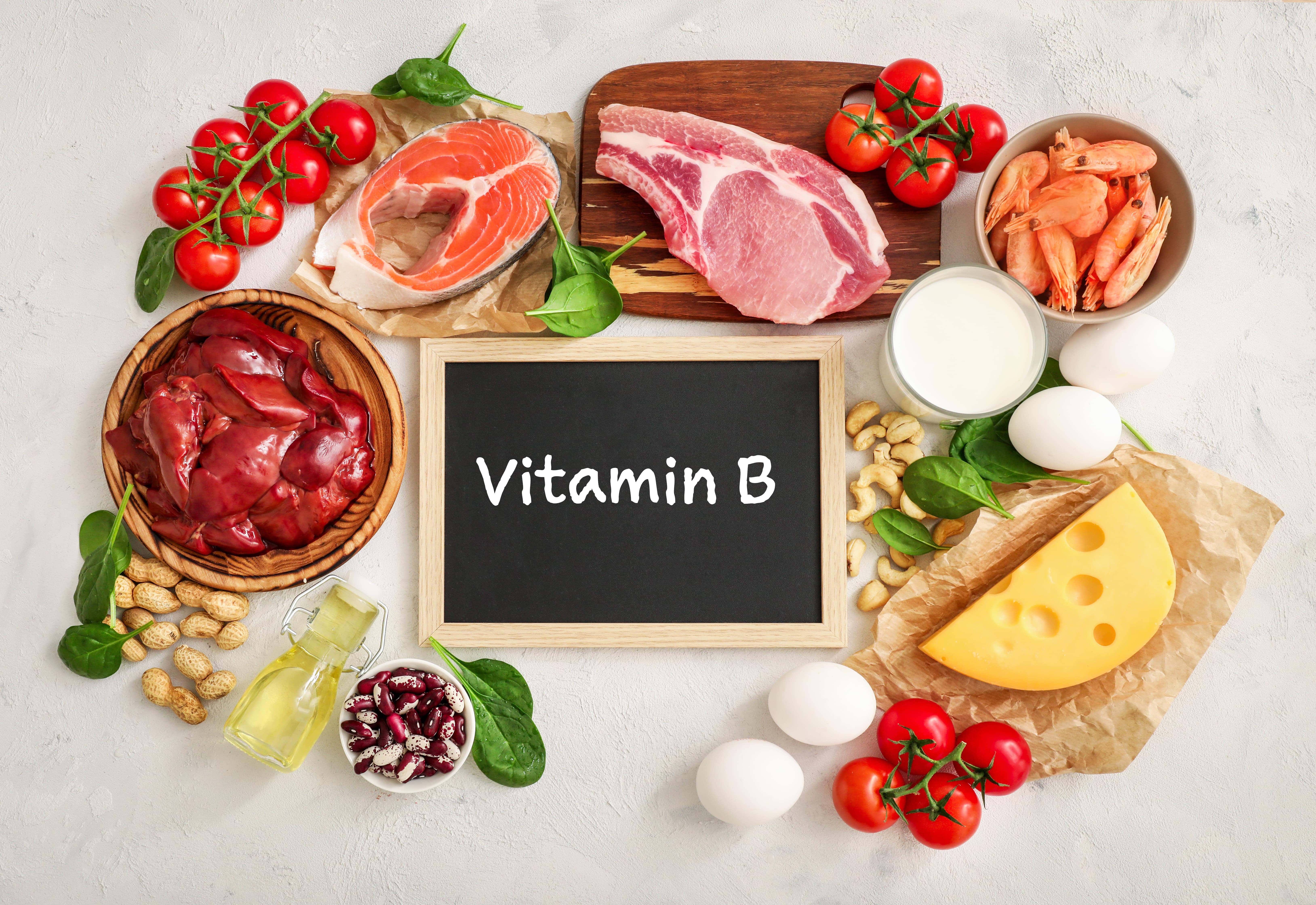As a woman, invest in your health today by eating nutrient-rich food. You will also avoid age-related health issues by consuming these nutrients regularly.
So, whether you are a teenager or in your 40s, start eating healthily and you will the benefits of good health. These nutrients are especially beneficial during your menstruating age. As an adult woman, include these nutrients in your diet for better health:
-
Folic Acid & B-Vitamins
Folic acid is an essential nutrient in forming red blood cells. Especially, during pregnancy, it will develop the baby’s brain and spinal cord. B-vitamins are important for energy, metabolism, heart health, and cell growth.
- B-1 (thiamine): Beans, Fish, Peas, and Sunflower seeds.
- B-2 (riboflavin): Eggs, Organ Meats, Milk, and Yogurt.
- B-3 (niacin): Chicken, Beef, and Fish.
- B-6 (pyridoxine): Beef, Fish, and Chickpeas.
- B-7 (biotin): Beef, Fish, Eggs, Avocados, Sweet Potatoes, and Nuts.
- B-12 (Cyanocobalamin): Chicken, Beef, Eggs, and Dairy.
Daily intake of Folic Acid: 400 micrograms (mcg)
-
Iron
As an essential nutrient, iron is required for growth, transporting oxygen to your cells, making hormones. Women often suffer from iron deficiency due to heavy periods or other underlying health conditions or poor diet. Iron deficiency often leads to anemia, where there are not enough healthy red blood cells to transport oxygen to your body. For better absorption, combine iron-rich food with Vitamin C. An example of such food pairing can be eggs and red peppers. You will find iron in red meat, chicken, nuts, beans, vegetables, and whole grains.
Daily intake of Iron: 18 mg daily
-
Vitamin D
The best source of Vitamin D is sunlight when your body synthesizes it during exposure to the sun. You can consume some foods that are sources of Vitamin D like Eggs, milk, and cheeses. You need to take a Vitamin D supplement if you are not getting enough sun exposure. Vitamin D combined with MK2 and Calcium helps in maintaining healthy bones. It also helps in cell growth, immunity, and reducing inflammation. Consider adding these foods like salmon, tuna, mackerel, milk, cheese, and eggs.
Daily intake of Vitamin D: 600 international units (IU)
-
Magnesium
Magnesium is an essential nutrient needed for maintaining a healthy heart, nerves, blood sugar, and blood pressure levels. Women are mostly deficient in magnesium as they don’t get enough from their diet. Consider taking a supplement especially, if you are planning pregnancy. You can get magnesium from foods like nuts, spinach, beans, peas, oats, wheat, barley, and dairy products.
Daily intake of magnesium: 320 mg
-
Probiotics
Even though it is not a nutrient, they are beneficial bacteria in your stomach that helps in nutrient absorption. You can get probiotics from fermented foods like yogurt, sauerkraut, miso, apple cider vinegar, kefir, etc.
While there are many other nutrients that you should be getting from a balanced wholefoods diet, these are some of the essential nutrients that every woman needs.
FAQ’s
How do B-vitamins benefit women?
B-vitamins, including B-1, B-2, B-3, B-6, B-7, and B-12, are essential for energy production, metabolism, heart health, and cell growth. They can be found in foods like beans, eggs, fish, and dairy products.
Why is iron important for women?
Iron is necessary for growth, transporting oxygen to cells, and hormone production. Women are more prone to iron deficiency due to heavy periods, leading to anemia. Combining iron-rich foods with vitamin C enhances absorption.
What is the significance of vitamin D for women?
Vitamin D aids in calcium absorption, supporting bone health. It also plays a role in immune function and reducing inflammation. Sources include sunlight, eggs, and fortified foods.
How does magnesium support women's health?
Magnesium is vital for maintaining healthy heart, nerve, blood sugar, and blood pressure levels. Many women are deficient in magnesium, which can be obtained from nuts, spinach, and whole grains.
What are probiotics, and why are they important?
Probiotics are beneficial bacteria that aid in nutrient absorption and support gut health. They can be found in fermented foods like yogurt, sauerkraut, and kefir.
How can a balanced diet impact menstrual health?
A diet rich in essential nutrients like iron, magnesium, and B-vitamins can alleviate menstrual symptoms such as cramps, fatigue, and mood swings. Incorporating these nutrients supports overall well-being during menstruation.
What are the daily recommended intakes for these nutrients?
For optimal health, women should aim for:
Folic Acid: 400 mcg
Iron: 18 mg
Vitamin D: 600 IU
Magnesium: 320 mg
Can supplements replace a healthy diet?
While supplements can help address deficiencies, they should not replace a balanced diet. Whole foods provide a range of nutrients that supplements may not offer, ensuring comprehensive health benefits.
How can women ensure they get these essential nutrients?
Women can incorporate a variety of nutrient-rich foods into their diet, such as leafy greens, lean meats, dairy products, and whole grains. Regular check-ups with a healthcare provider can help monitor nutrient levels and address any deficiencies.

